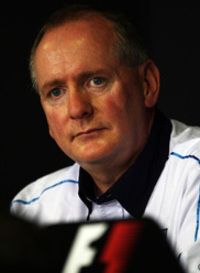F1’s Communications Conundrum- Mark Gallagher
April 30, 2012
One of the most frustrating aspects of the political controversy surrounding the Bahrain Grand Prix was the poor manner in which Formula One’s stakeholders handled their communications. This enabled the protest movement and particularly the Bahrain Centre for Human Rights to generate global outrage, with near-hysterical reporting and very difficult questions being asked about F1’s ethics.
Depending on where you looked the story coming from Bahrain was confusing; it was either a hot bed of riots and protests, or business as normal with no apparent issues. The reality was of course a bit of both.
I was interviewed several times over the fortnight leading up to the race by Al Jazeera News, BBC and Sky News. The questions weren’t easy. Invited onto BBC Radio 5 Live’s radio breakfast show with Nicky Campbell, I suffered an ambush interview against a Bahraini, Ali Mushaime, who was taking part in a 10-day hunger strike outside the US Embassy in London.
The first question I was asked was how I felt about racing on the blood of the Bahraini people? Not easy to answer, but I did my best. The BBC failed to gets its confrontation.
What struck me most about the Bahrain controversy was the complete lack of credible media communications strategy coordinated between FOM, FIA and the Bahrain promoter. The resulting vacuum was inevitably filled by the protest movement, speculation from the 24/7 media and social networks. It also meant that since the media couldn’t get a proper answer from F1, they asked the drivers, the team bosses, the mechanics; people who should never have been put in that position.
I was not entirely sure why journalists such as The Independent’s columnist Robert Fisk expected double World Champion Sebastian Vettel to have anything profound or relevant to say about the situation. I doubt many F1 drivers appreciate the nuances of Sunni-Shia politics, but the questions were asked nevertheless and the media was frustrated by glib answers.
With news organisations not allowed into Bahrain, it was left to sports journalists to report on the protests from the Shia villages. This was a huge error by the government, for sports journalists are not used to seeing riots and the sense of horror in their reports was therefore all the greater. F1 correspondents such as Kevin Eason (The Times), Tom Cary (The Daily Telegraph) and Byron Young (The Mirror) visited the protest areas and were shocked by what they heard and saw. Others, including Brad Spurgeon (International Herald Tribune) and highly regarded freelancers David Tremayne and Joe Saward, met up with local fans in Manama and were assured everything was being blown out of proportion.
Confusion reigned, rolling news focussed on the protests, and F1 found itself accused of lacking moral fibre.
Ultimately it was with the appearance of Bernie Ecclestone in the paddock alongside the Crown Prince of Bahrain that the media finally had some answers. The Crown Prince, articulate and western educated, made some reasonable points with Bernie at his shoulder. It was a good performance. Bernie pulled a few key journalists into 1-2-1 interviews afterwards, and suddenly it no longer seemed like a crisis. The fractious nature of the reporting suddenly diminished.
Over the next 12 months the debate will continue about whether F1 should be racing in Bahrain or not. Whatever the decision, the one thing F1 must do is to take its responsibilities seriously, communicate its messages effectively, and deliver a strategy which treats the media like adults and takes its competitors out of the firing line.
About Mark Gallagher:
Mark Gallagher is Managing Director of the CMS Motor Sport consultancy, co-owner of the Status Grand Prix motor racing team which competes in both Le Mans sports car racing and the GP3 feeder-series to Formula One, and an F1 commentator on ESPN Star Sports in Asia. He is also a professional conference speaker on the business lessons to be learned from Formula One, drawing on his experiences in senior management positions in the sport.
You can follow him on @MarkGallagher62
{jcomments on}


